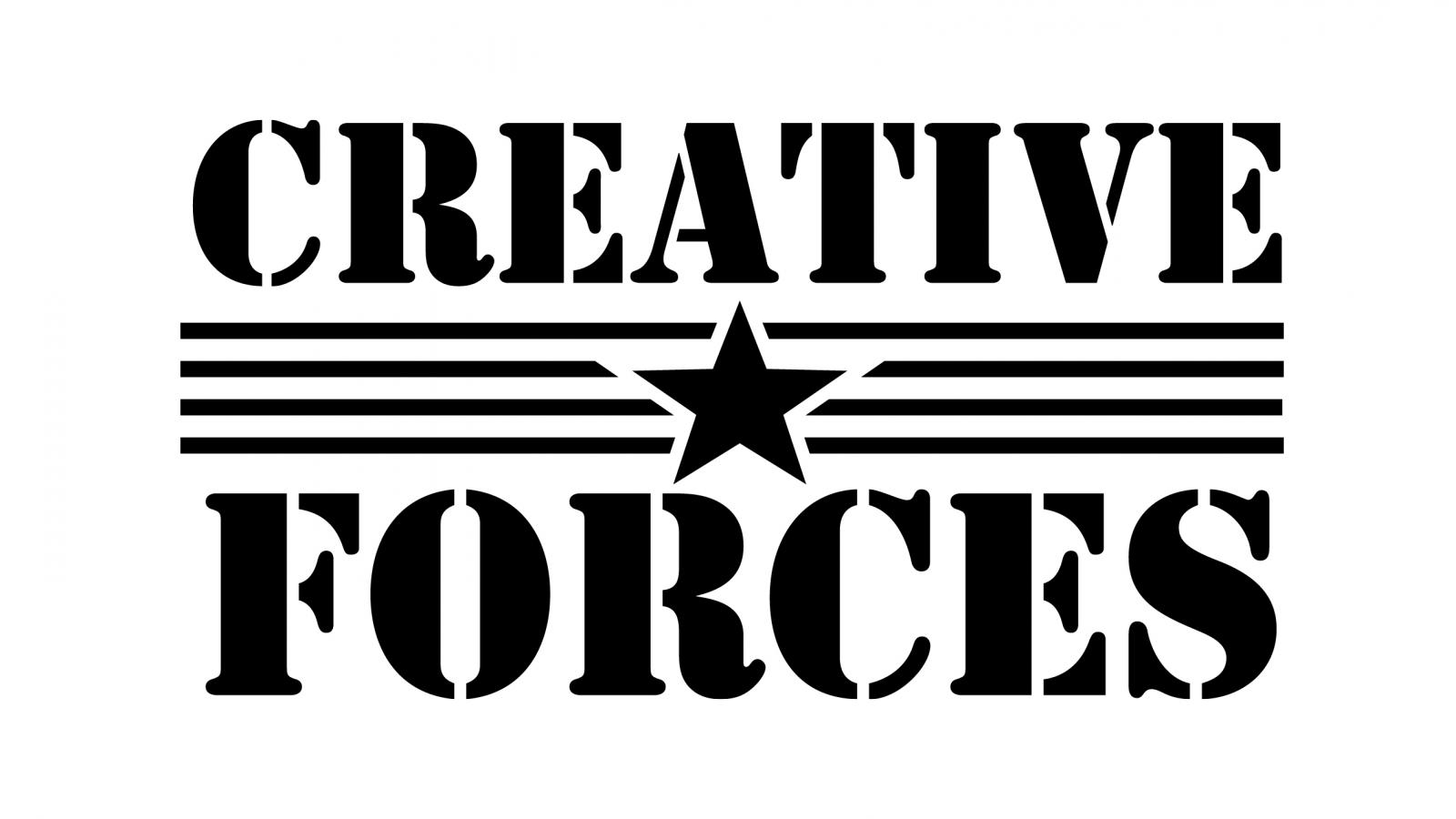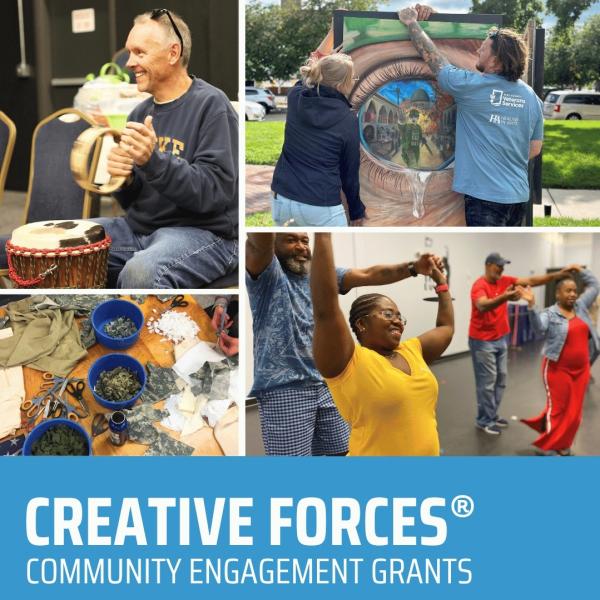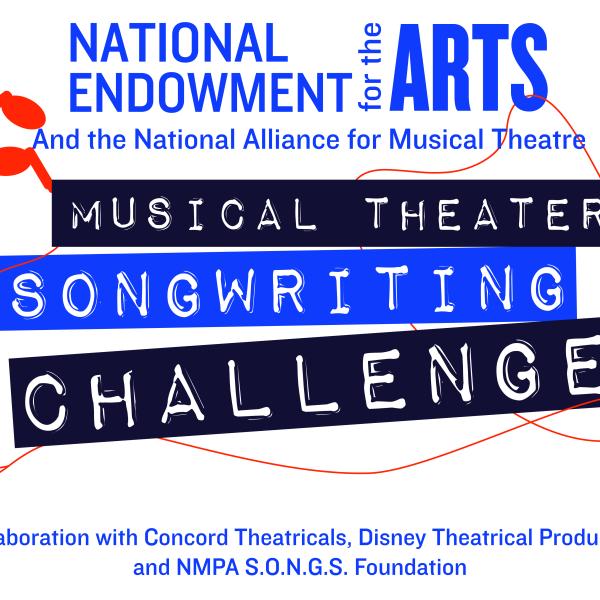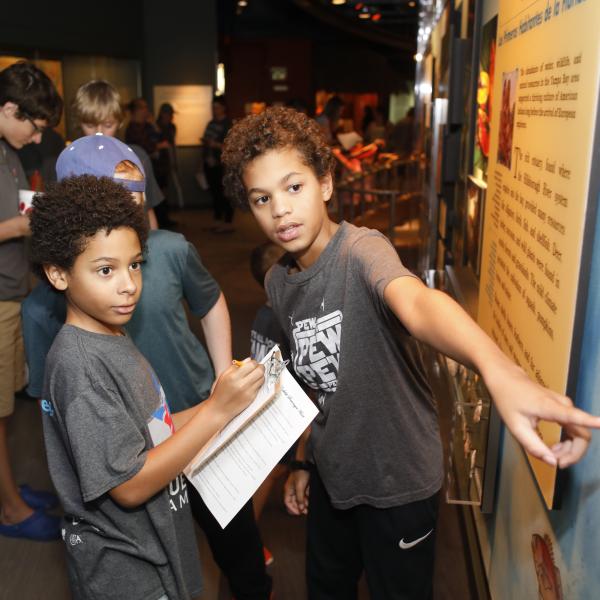New Investments in Healing Arts Program for the Military

Washington—The role of the arts in helping heal the signature wounds of our recent wars is significant and expanding. Through its national initiative Creative Forces: NEA Military Healing Arts Network, the National Endowment for the Arts (NEA) is adding four clinical sites to the existing seven sites that provide creative arts therapies for service members, veterans and families dealing with traumatic brain injuries (TBI) and post-traumatic stress disorder (PTSD). The new sites are:
- Joint Expeditionary Base - Little Creek, Virginia
- Fort Campbell - Kentucky
- James A. Haley Veterans’ Hospital - Tampa, Florida
- Fort Carson - Colorado
Clinical Component
The new clinical sites join an existing Creative Forces network that includes:- Joint Base Elmendorf-Richardson Anchorage, Alaska
- Marine Corps Base Camp Pendleton – Oceanside, California
- National Intrepid Center of Excellence (NICoE) at Walter Reed National Military Medical Center – Bethesda, Maryland
- Marine Corps Base Camp Lejeune – Jacksonville, North Carolina
- Fort Hood – Killeen, Texas
- Fort Belvoir Community Hospital – Fort Belvoir, Virginia
- Madigan Army Medical Center – Tacoma, Washington
Community Component
To build the community component at each of the 11 sites, Creative Forces will lead efforts to:- Establish local military/community networks that can help service members and veterans transition from clinic-based creative arts therapies to arts activities in their communities.
- Convene local summits where arts, community, and military populations collaborate on strategies to support military and veteran families. The summits also will offer training.
- Pursue an innovation project in each state that may be adapted to other locations. Project ideas under development include:
- Providing tele-support services for remote locations
- Aligning resources and strategies within a region or across federal and state agencies
- Undertaking program assessment
Capacity-building Component
As part of the agency’s plans for developing resources to assist the community networks and help advance creative art therapy for military personnel, the NEA is investing in research. The most recent research project featured an empirical study published in the peer-reviewed International Journal of Qualitative Studies on Health and Well-being on Active-duty military service members’ visual representations of PTSD and TBI in masks. One of the report’s authors, Girija Kaimal, discussed some of the findings on the NEA’s Art Works blog. Another report supported through Creative Forces is Art therapy for PTSD and TBI: A senior active duty military service member’s therapeutic journey.About the National Endowment for the Arts
Established by Congress in 1965, the NEA is the independent federal agency whose funding and support gives Americans the opportunity to participate in the arts, exercise their imaginations, and develop their creative capacities. Through partnerships with state arts agencies, local leaders, other federal agencies, and the philanthropic sector, the NEA supports arts learning, affirms and celebrates America’s rich and diverse cultural heritage, and extends its work to promote equal access to the arts in every community across America. Visit arts.gov to learn more about NEA.About Americans for the Arts
Americans for the Arts is the nation’s leading nonprofit organization for advancing the arts and arts education, dedicated to representing and serving local communities and to creating opportunities for every American to participate in and appreciate all forms of the arts. With offices in Washington, DC, and New York City, it has a record of more than 55 years of service. Since 2011, Americans for the Arts has led the National Initiative for Arts & Health in the Military (NIAHM), a collaborative effort that seeks to advance the policy, practice, and quality use of the arts and creativity as tools for health in the military; raise visibility, understanding, and support of arts and health in the military; and make the arts as tools for health available to active duty military, military families, and veterans. NIAHM's partners include the American Legion Auxiliary, U.S. Dept. of Veterans Affairs, U.S. Veterans Health Administration, and NIH’s National Center of Complementary & Integrative Health alongside arts, humanities, and veterans service nonprofits; state and local cultural agencies; and universities around the country. Additional information is available at www.artsacrossthemilitary.org.Contact
Victoria Hutter, hutterv@arts.gov, 202-682-5692




